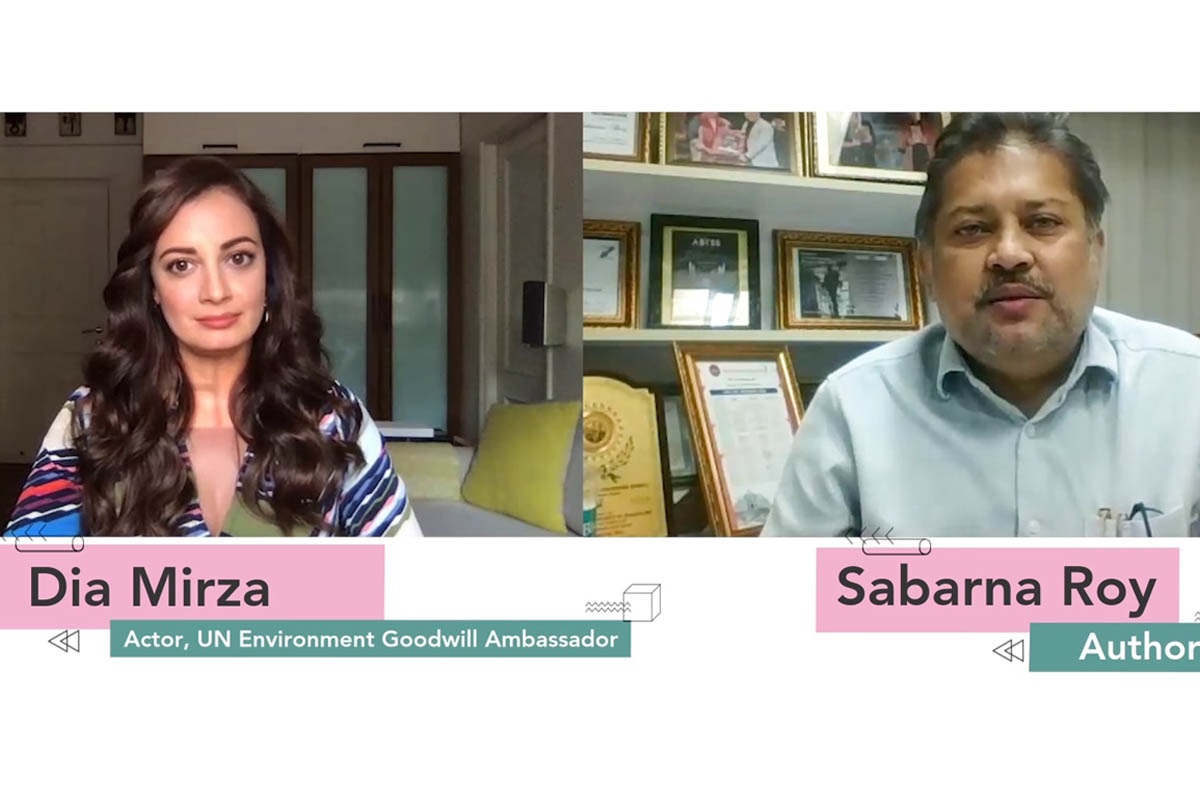Trump announces US withdrawal from World Health Organisation
Trump has long been critical of the WHO, and his administration formally withdrew from the organisation in July 2020 as the Covid-19 pandemic continued to spread.
These two people from entirely different backgrounds seemed to agree that authors have a great responsibility to capture the essence of the current times in their respective works and make it an indelible part of the Indian literature.

Dia Mirza seemed to agree with Sabarna Roy on the huge crisis that humanity faced because of COVID-19 but chose to be optimistic about the future. (SNS)
COVID-19 and the lockdown have unleashed a new kind of loneliness that plagues the minds of each one of us because of the social distancing norms and less socialising in our lives. All of us miss that innocuous chit-chat and weekly get-togethers that used to fill our lives with laughter and fun. However, the scenario has also brought people from different walks of life together in the virtual world as it emerged as a refuge to most of us by giving a sense of hope.
One such online interaction happened between actor-producer-activist Dia Mirza and a career engineer and author by choice, Sabarna Roy and it led to a very interesting discussion on the Indian Literature in the times of COVID-19. These two people from entirely different backgrounds seemed to agree that authors have a great responsibility to capture the essence of the current times in their respective works and make it an indelible part of the Indian literature.
Advertisement
Sabarna Roy is currently working on a new paper to be published by Routledge next year which examines this new existential crisis through the stories of COVID-19 warriors and survivors. During their discussion, Sabarna Roy shared his belief that authors have a great responsibility to capture the truth about the lockdown and how it devastated many lives including the ones of the migrant workers who had been left on their own during this gargantuan human crisis.
Advertisement
“I truly believe that the unplanned imposition of lockdown has resulted in long-term ill effects on the small and the medium sector of the economy. The unorganized sector was heavily hit and it resulted in job losses for people from the lower middle class and middle class. This happened in the organized manufacturing sector too but no one seems to be interested in talking about it, which is very unfortunate,” said Sabarna Roy.
“The reverse migration of the working class from cities to their villages with almost no hope of any further employment is an image that I can’t really shake out of my mind. Everyone from legislation, judiciary and the executive and each one of us is responsible for this failure that shamed humanity. Authors, to my mind, have to expose this truth and bring out the human stories while revealing the pathetic state of medical, paramedical and physical infrastructure that we have in our country,” he further emphasised.
Dia Mirza seemed to agree with Sabarna Roy on the huge crisis that humanity faced because of COVID-19 but chose to be optimistic about the future.
“What the pandemic and lockdown did was to expose the many levels of inefficiency, discrepancy and lack of systems that we have and how that impacts human life. At the same time, I feel hopeful to see that it also acted as a great opportunity to discover how we make things work despite everything. We do have the ability to do much better and this crisis rattled us all with that realisation. I am confident of a brighter future,” said Dia Mirza.
“I really hope that this crisis and the experience give our central and state governments the opportunity to thoroughly examine the gaping loopholes in the systems and improve. They definitely have a better view of what can be genuinely done to give everyone’s life more dignity,” she further said.
Advertisement